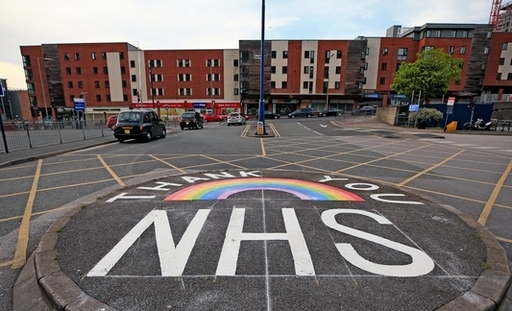
The nhs deserves applause — and also reform | thearticle
- Select a language for the TTS:
- UK English Female
- UK English Male
- US English Female
- US English Male
- Australian Female
- Australian Male
- Language selected: (auto detect) - EN
Play all audios:

But might there also be a possibility that, far from being the “envy of the world”, the NHS has served us less well than health services in comparable countries have served their
populations? An analysis by the Deep Knowledge Group, composed of assorted research companies and institutes, has offered a “Treatment Efficiency Ranking” for different countries. It gives
points for “speed and frequency of diagnostic monitoring”, “level of access to personal medical supplies” and “size of emergency equipment stockpile”. Dr Kristian Niemietz of the Institute
of Economic Affairs notes: “Virtually none of the countries that do well have fully nationalised, state-run healthcare sectors. Mixed economy systems, which use a combination of private and
public provision — and often a mix of private and public funding as well — have an edge over monolithic, monopolistic NHS-type systems.” Germany, which operates with a large number of
competing health insurers, came top. South Korea, Japan, Taiwan and Singapore all did well. We did poorly, coming in behind Romania and Bulgaria. There have been serious miscalculations. To
avoid the NHS being overloaded many operations and appointments have been cancelled. Cancer Research UK estimates that 2,300 cancers are being missed every week as a result of breast,
cervical and bowel screening being suspended. Professor Karol Sikora warns there could be 50,000 extra cancer deaths. Yet rather than being overloaded the NHS has been less busy than usual.
Hindsight is a wonderful thing. Some other countries, such as Canada, have also disrupted their cancer treatments. But indirect death toll for the UK may well prove high relative to the rest
of the world. It’s not just about avoiding making a mistake but adapting and being responsive in order to correct it. The NHS is a lumbering, bureaucratic monolith. The health care systems
elsewhere have shown greater dexterity. Then, of course, there is the lack of testing. Matthew Lesh has researched the matter for the Adam Smith Institute. He concludes: “The UK’s Covid-19
testing has been dangerously slow, excessively bureaucratic and hostile to outsiders and innovation. There appears to be an innate distrust of outsiders. PHE has actively discouraged use of
private sector testing. Even within the system, the process for testing and validation is very centralised.” It is hard to ignore such failings but some refuse to criticise the NHS, finding
it more comfortable to blame politicians or declare that more money is needed. But the problem is mismanagement and it is inherent in the system. It is not that the managers themselves are
uncaring or incompetent. So please do clap for carers. But if you want them to be able to carry out their vital work safely and effectively than don’t clap for an unreformed NHS. We should
have the humility to look to the rest of the world to see how we can do better.
